 Join us at the FOTA CONNECT LEARNING SERIES Join us at the FOTA CONNECT LEARNING SERIES
FOTA CONNECT is a way to connect with our members, fellow OT/OTA practitioners, students, educators and the general public to discuss and learn about Occupational Therapy related topics.
Would you like to present at one of our FOTA Connect Sessions? FOTA Members may submit to present for FOTA CONNECT sessions. To submit a proposal we require course description, abstract, objectives, speaker bio and CVs for CE Broker approval. Your proposal will be reviewed and if accepted, given a presentation time slot. Submit below to be considered.
2024 FOTA Connect Member Sessions
2024 Past Sessions:
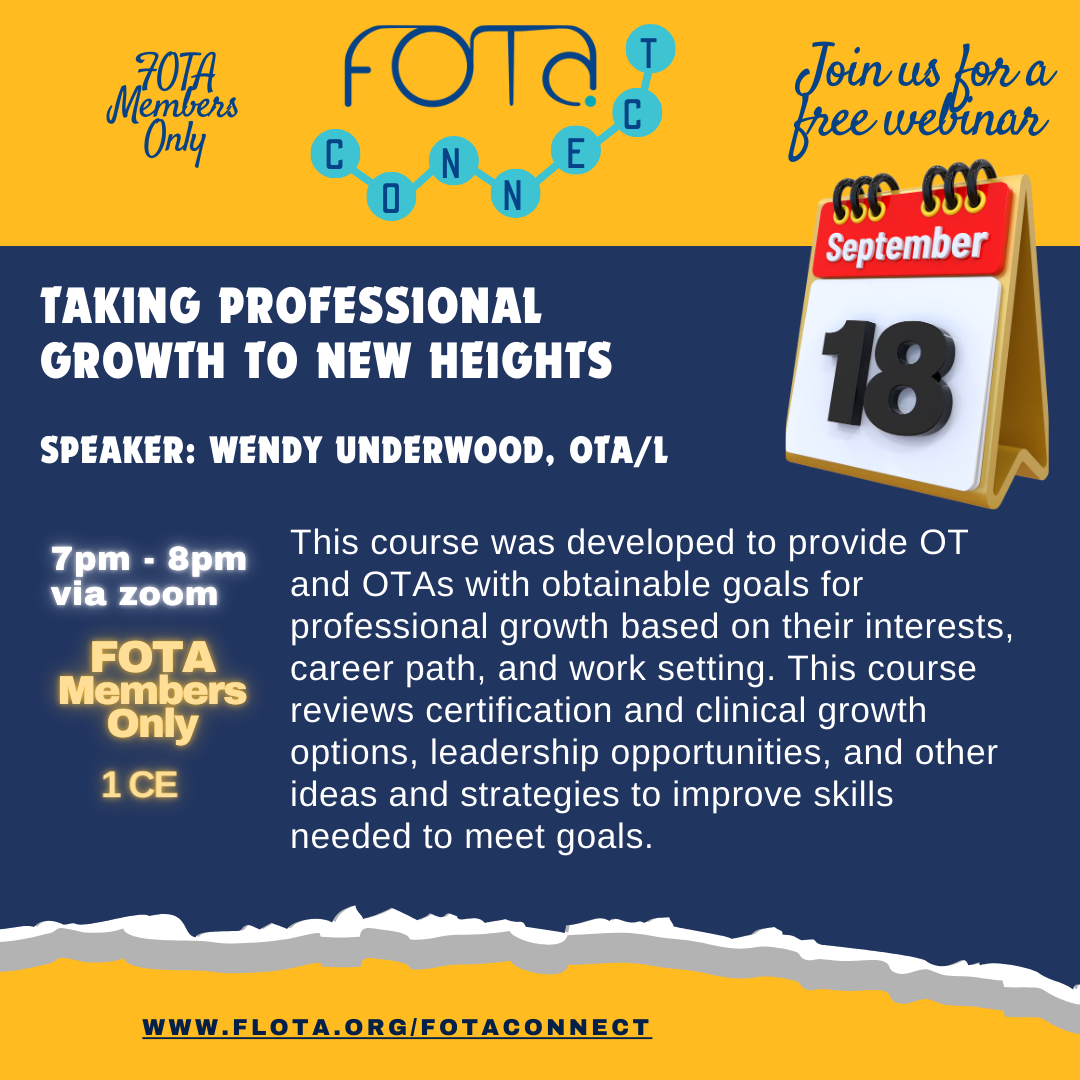   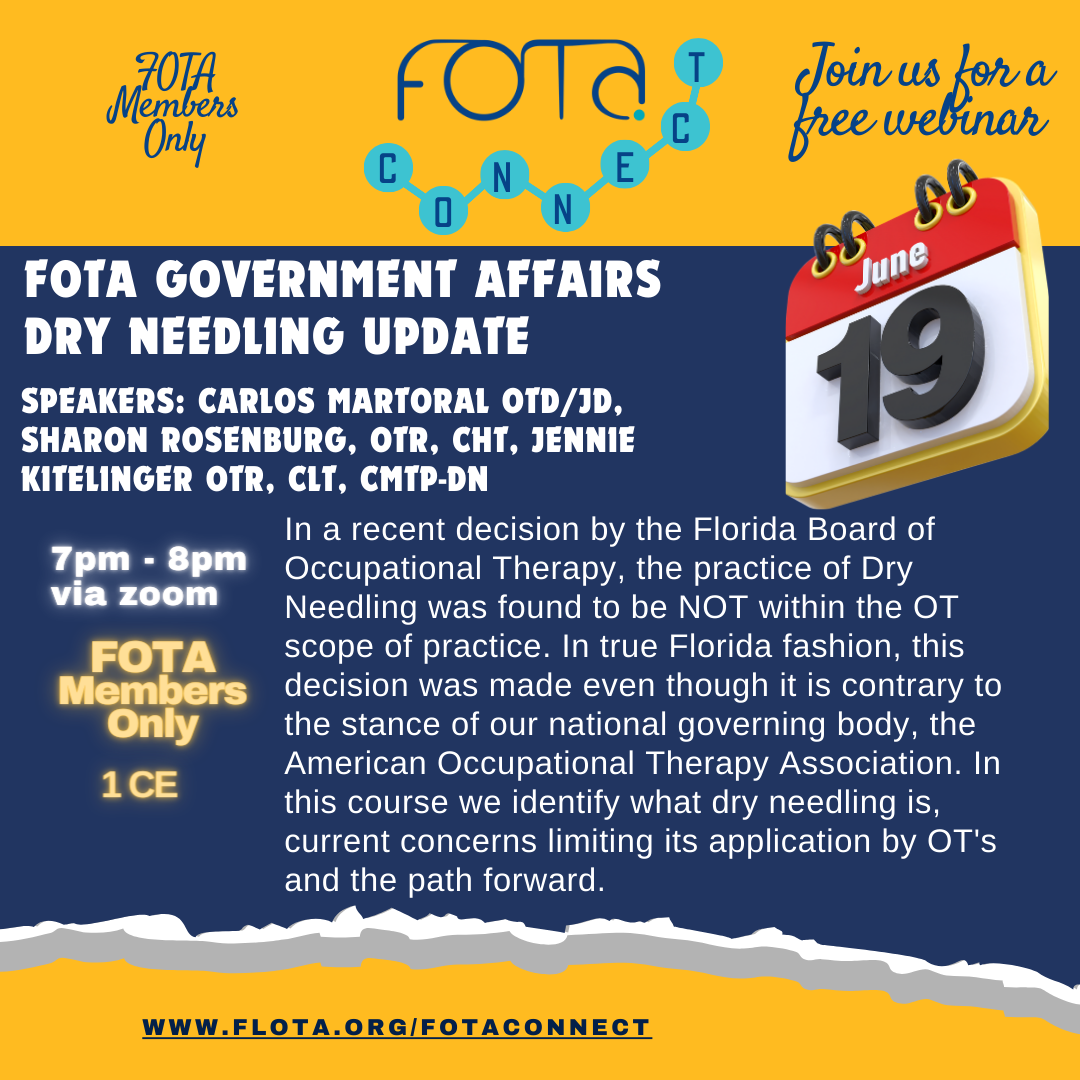 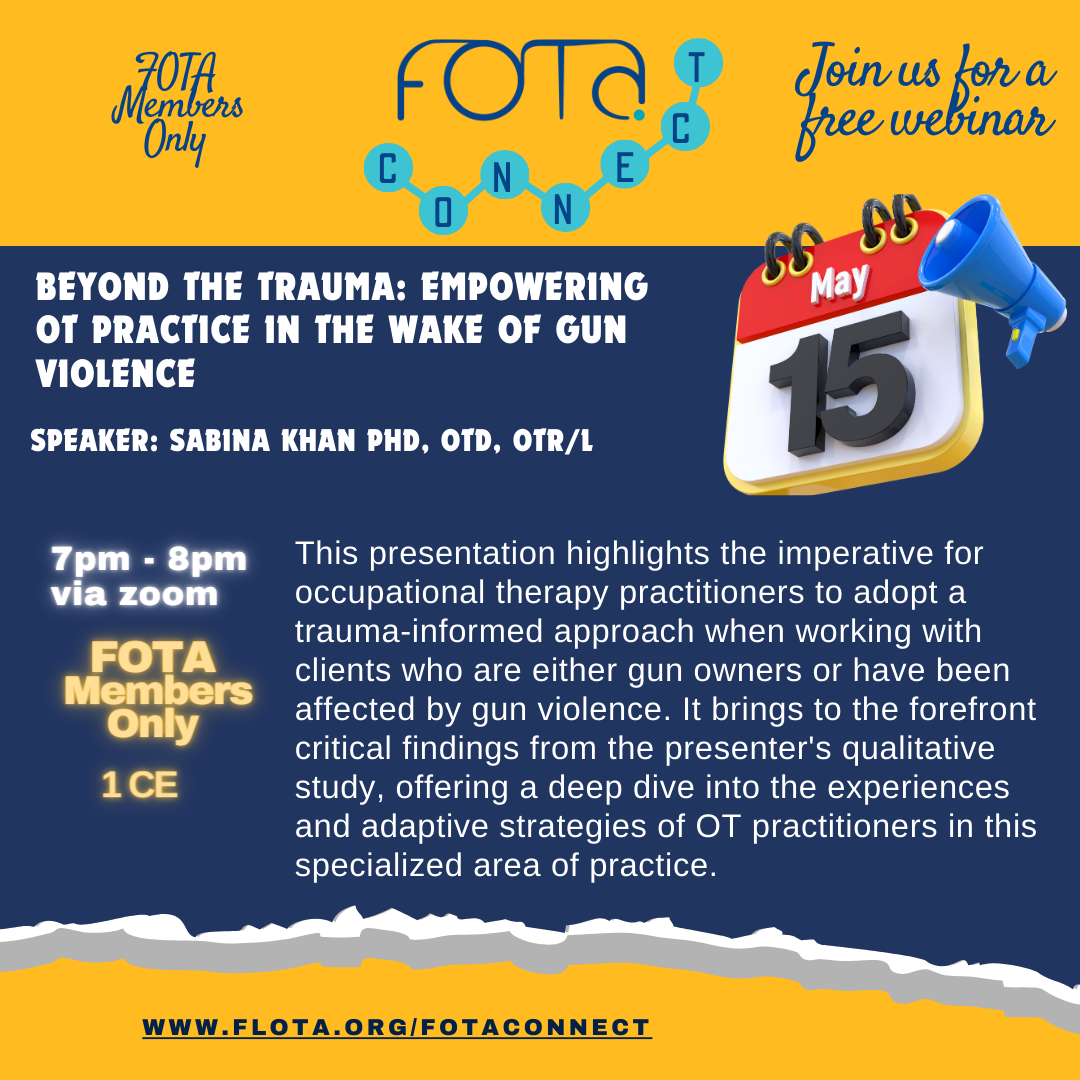 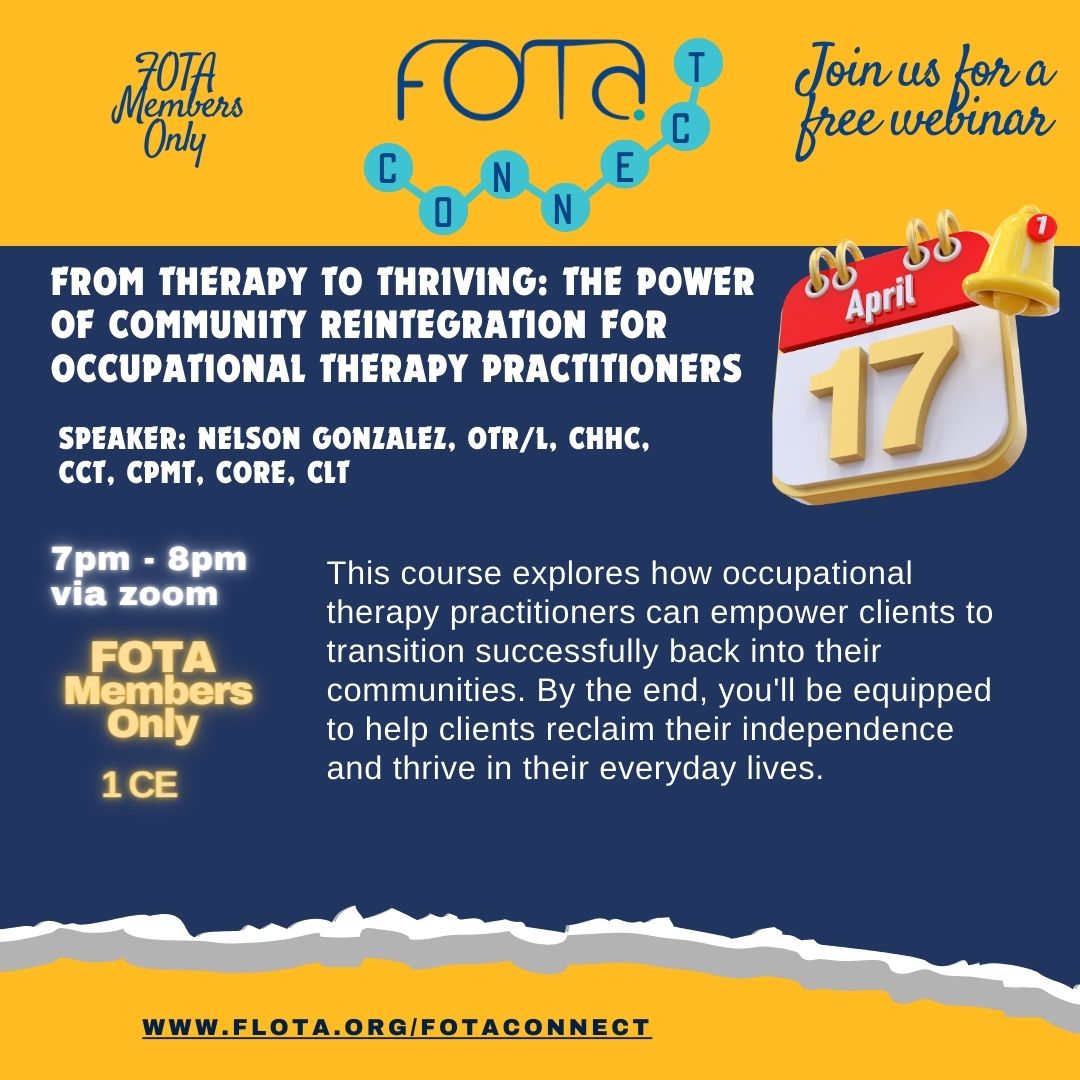 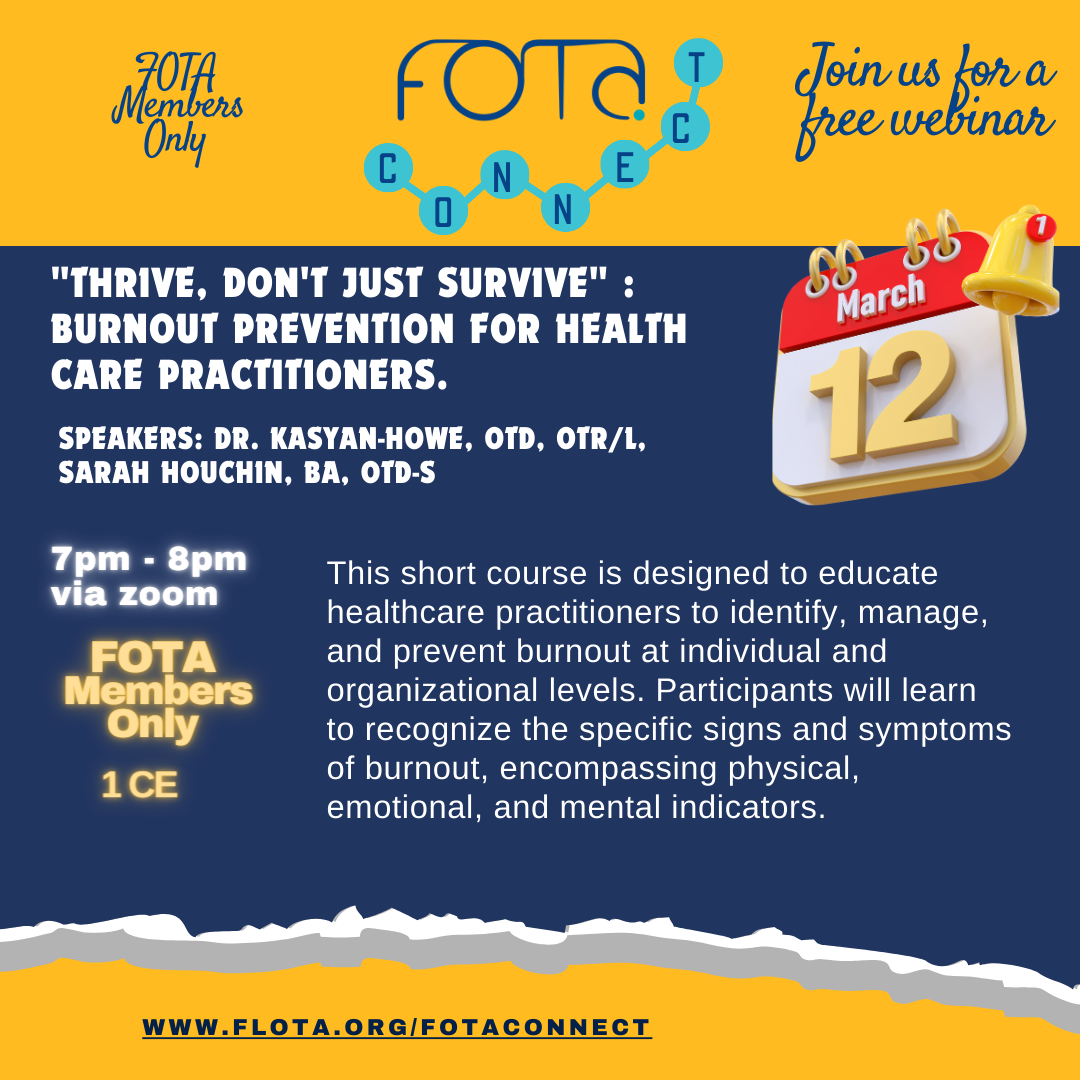 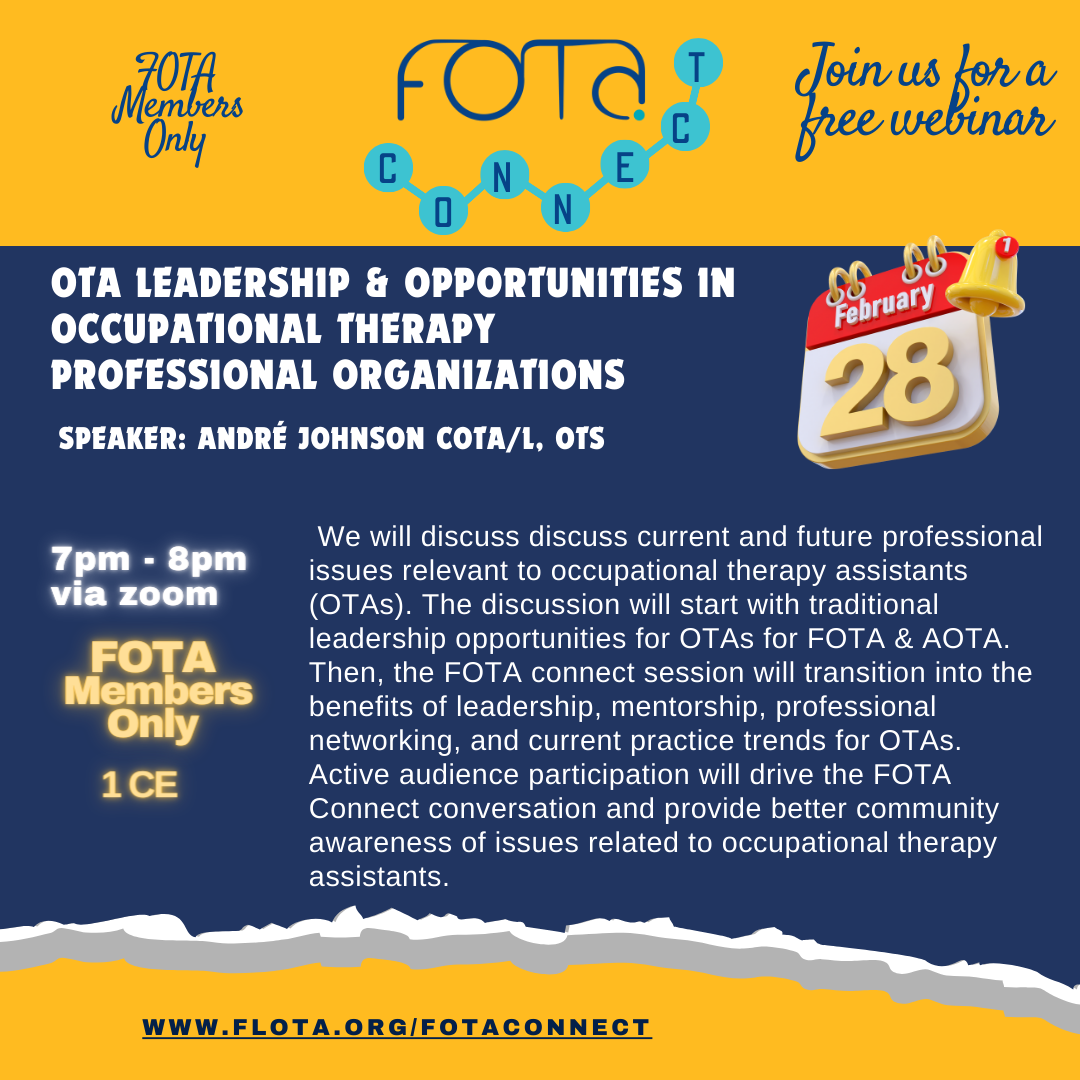 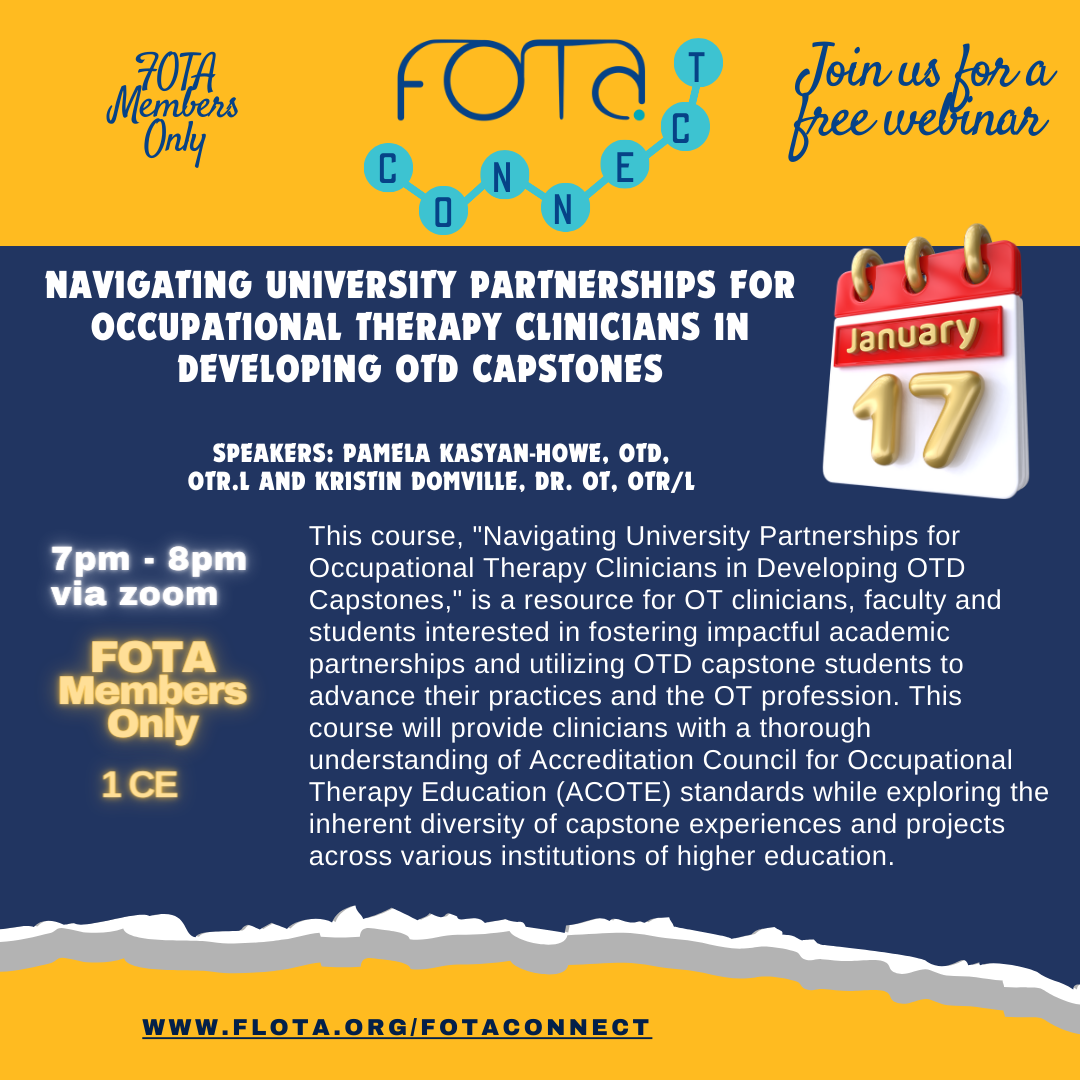
|